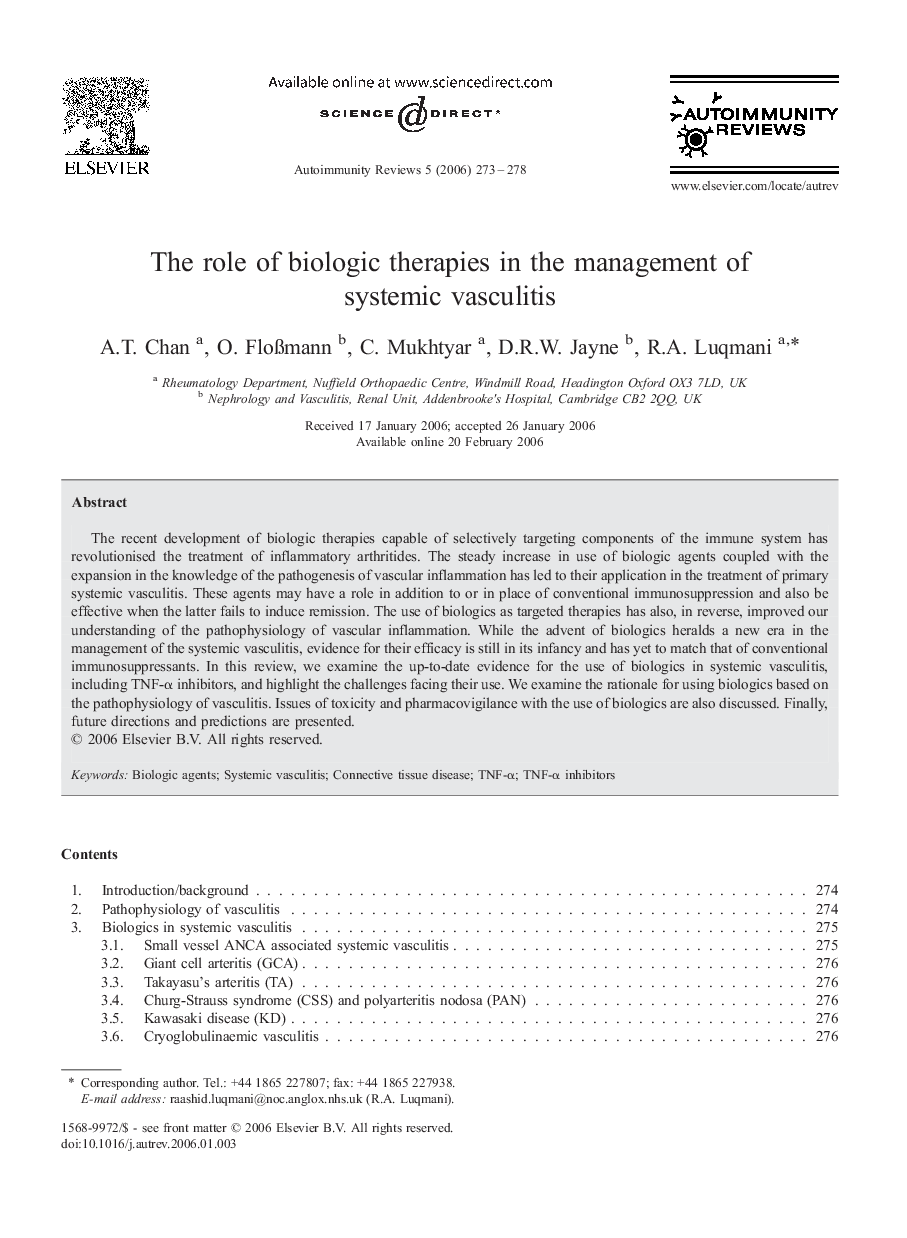| Article ID | Journal | Published Year | Pages | File Type |
|---|---|---|---|---|
| 3342492 | Autoimmunity Reviews | 2006 | 6 Pages |
The recent development of biologic therapies capable of selectively targeting components of the immune system has revolutionised the treatment of inflammatory arthritides. The steady increase in use of biologic agents coupled with the expansion in the knowledge of the pathogenesis of vascular inflammation has led to their application in the treatment of primary systemic vasculitis. These agents may have a role in addition to or in place of conventional immunosuppression and also be effective when the latter fails to induce remission. The use of biologics as targeted therapies has also, in reverse, improved our understanding of the pathophysiology of vascular inflammation. While the advent of biologics heralds a new era in the management of the systemic vasculitis, evidence for their efficacy is still in its infancy and has yet to match that of conventional immunosuppressants. In this review, we examine the up-to-date evidence for the use of biologics in systemic vasculitis, including TNF-α inhibitors, and highlight the challenges facing their use. We examine the rationale for using biologics based on the pathophysiology of vasculitis. Issues of toxicity and pharmacovigilance with the use of biologics are also discussed. Finally, future directions and predictions are presented.
